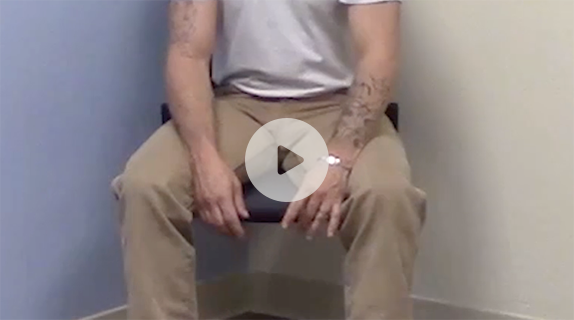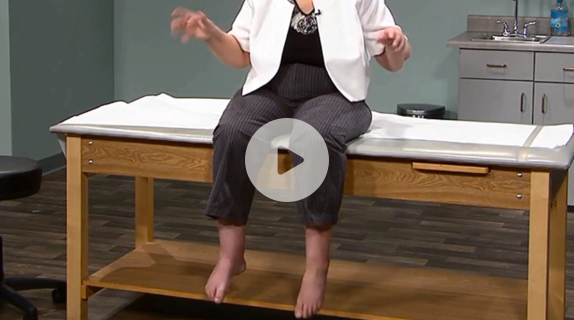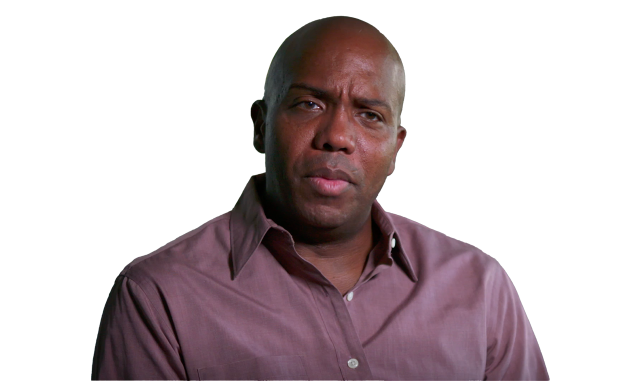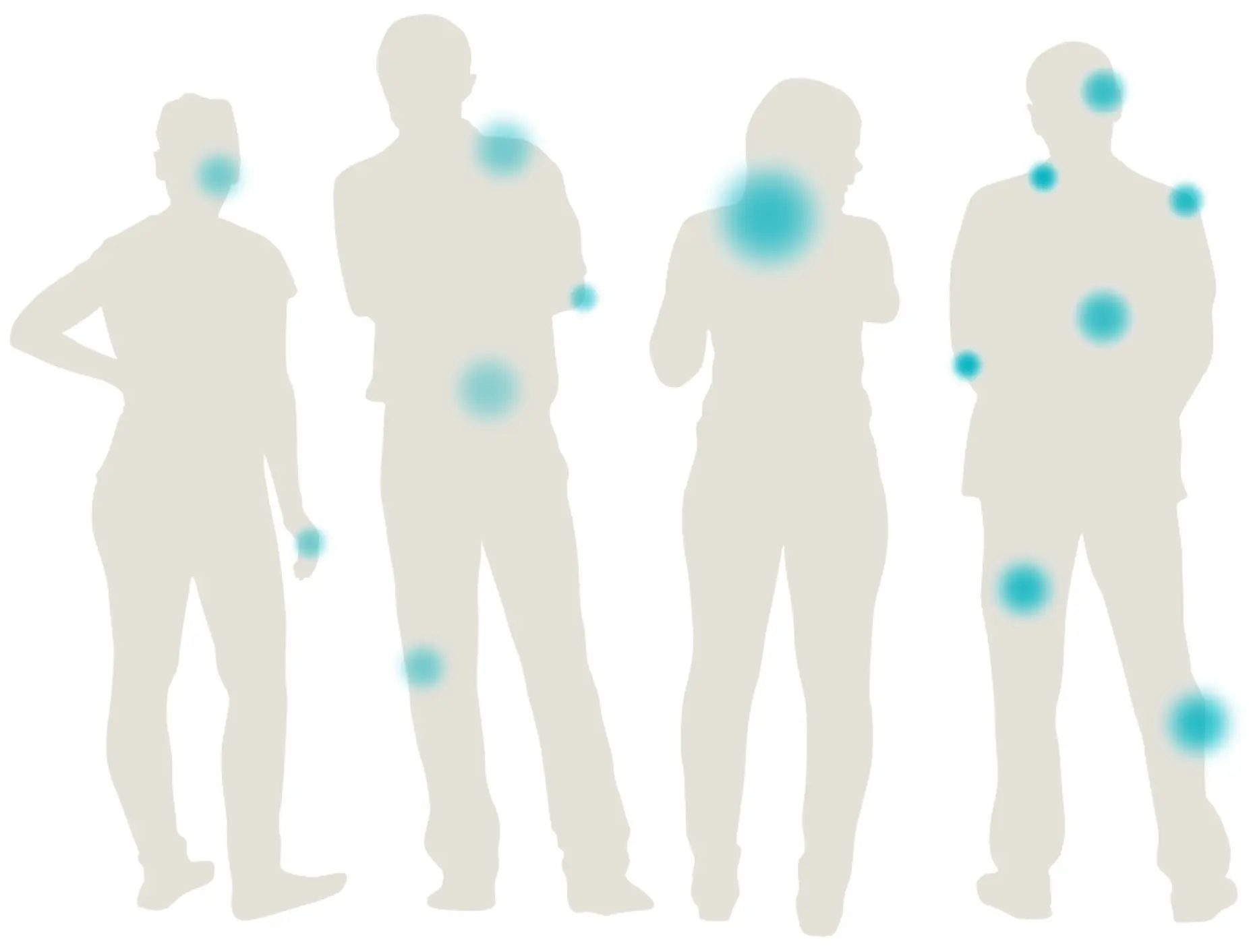Hands and fingers
What is tardive dyskinesia (TD)?
Mild to severe twitching, shaking, or jerking in the hands, feet, face, or torso are signs of tardive dyskinesia. Involuntary blinking, tongue movements, and other uncontrollable movements can also be signs of TD.1,2 Embarrassment and avoiding going out in public may be emotional signs of TD. The whole person can be affected by tardive dyskinesia.3
Mild to severe INVOLUNTARY movements1
Feet
Torso
Blinking
Tongue movements
Recognizing symptoms of tardive dyskinesia1
Does any of this sound familiar? Click below to see how the symptoms of TD may appear. Only your healthcare provider can confirm if you have TD.





Download the APPOINTMENT PREPARATION GUIDE
Use it at your next visit to help start the conversation.
What causes TD?
Tardive dyskinesia (TD) is caused by certain prescription mental health or gastrointestinal medications. It’s important to remember that all medications can cause unwanted side effects. If you’re like most people, you decide to take a medication because the benefits outweigh the risks.2
Medications that may cause tardive dyskinesia2:
- Antipsychotics
- Antidepressants
- Antiemetics (for the prevention of vomiting)
Conditions that may be linked to tardive dyskinesia2,3:
- Mental health
- Schizophrenia
- Bipolar disorder
- Depression
- Gastrointestinal
- Gastroesophageal reflux disease (GERD)
1 in 4 people who are taking certain mental health medications, such as antipsychotics or antidepressants, may develop the uncontrollable movements of TD. This can occur as early as 3 months after a person starts taking one of these medications, and the risk increases the longer the individual is taking it.1-3

“People would ask me if I was on drugs because my body was always moving. I didn’t realize what was happening.”
A personal perspective
Raven C. on diagnosing his TD symptoms
hear raven's storyThis patient has received compensation. Patient image is being used with permission.
Tardive dyskinesia is personal and affects
everyone differently1-5
TD symptoms vary from person to person and may be mild, moderate, or severe. Some people have involuntary movements in 1 area of the body while others have them in multiple areas.

td severity range
Even mild symptoms can have a physical impact (restlessness, difficulty holding utensils) and emotional impact (resisting going out in public, comments from friends and family). If you are experiencing a physical or emotional impact because of your uncontrollable movements, talk to a trusted healthcare provider about treatment options.
HEAR FROM OTHERSquestionnaire
Which of your everyday activities are affected by involuntary movements?1-3*
RESULTS:
Reading and/or writing
0%Eating and/or drinking
0%Speaking or being understood by others
0%Sleeping
0%Socializing or spending time in public
0%Cooking
0%Going to work
0%Other
0%None of the above
0%THE UNCONTROLLABLE MOVEMENTS OF TD CAN HAVE SIGNIFICANT PHYSICAL, FUNCTIONAL, EMOTIONAL, AND SOCIAL IMPACTS.1-3
learn more about the impact of TD*Information provided will be used only for the purposes of this poll. Answers will be displayed on this website in aggregate and will not personally identify you. If you do not agree to these terms, please do not participate in the poll.
References: 1. Warikoo N, Schwartz T, Citrome L. Tardive dyskinesia. In: Schwartz TL, Megna J, Topel ME, eds. Antipsychotic Drugs. Nova Science Publishers, Inc.; 2013:235-258. 2. Waln O, Jankovic J. An update on tardive dyskinesia: from phenomenology to treatment. Tremor Other Hyperkinet Mov (N Y). 2013;3:tre-03-161-4138-1. doi:10.7916/D88P5Z71 3. Derrow P. What is tardive dyskinesia? Symptoms, causes, diagnosis, treatment, and prevention. Everyday Health. Accessed December 13, 2023. https://www.everydayhealth.com/tardive-dyskinesia/ 4. Cornett EM, Novitch M, Kaye AD, Kata V, Kaye AM. Medication-induced tardive dyskinesia: a review and update. Ochsner J. 2017;17(2):162-174. 5. Tardive dyskinesia. National Alliance on Mental Illness. Accessed December 12, 2023. https://www.nami.org/About-Mental-Illness/Treatment/Mental-Health-Medications/Tardive-Dyskinesia
You are about to leave this site
You are about to leave tardiveimpact.com
and enter a website operated by a third party.
Would you like to continue?
You are about to leave this site
You are about to leave tardiveimpact.com and go to a site
informing you about a prescription treatment option.
Would you like to continue?
